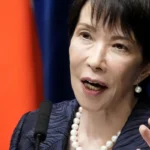
The sovereignty of Iran and the resistance to the empire – the Middle East does not surrender
Amid the distant echo of explosions and the tense silence that follows the unlavod wars, Iran’s supreme leader, Ayatollah Ali Khamenei, lifted his voice on Sunday with clarity that reverberates throughout the Middle East: Iran will not surrender. In the face of thousands of Iranians and close eyes from the world, Khamenei not only rejected direct negotiations with the United States, but unmasked the essence of Western pressures: it is not diplomacy but domination. A agreement is not sought, but the submission of the Islamic Republic.
Also read:
Khamenei raises wall against surrender to the West
US Border Wall will be painted with black paint to be hostile
White House presses and questions independence of intelligence
Khamenei’s speech, given in a moment of extreme regional tension, is not just a political discourse – it is an act of resistance. Resistance against decades of American interference, unilateral sanctions, against coordinated bombings with Israel and against the incessant attempt to shape the Middle East map according to Washington’s interests. After the devastating 12 -day war in June – which cost more than 1,000 civil lives and destroyed part of the country’s scientific and military heritage – the United States was not limited to supporting Israel: actively participated in the attacks on Iranian nuclear facilities. What was left was not a ceasefire, but a ceasefire informala precarious truce under the shadow of new threats.
In this scenario, the American proposal of dialogue, mediated by special envoy Steve Witkoff, reveals itself as a scam. How can there be negotiation between equals when one side imposes sanctions, bombarding facilities and requiring capitulation as a previous condition? Khamenei is right: what the US wants is not an agreement, but the surrender of Iran. And this is not just an Iranian issue – it is a matter of sovereignty for the whole region.
The West, led by the United States, insists on treating the Middle East as an imperial plaid board. From the unilateral withdrawal of the nuclear agreement in 2018, under the Trump government, to the current pressures of the so-called E3 (Britain, France and Germany) to trigger the “instant return” mechanism of sanctions, the narrative is always the same: Iran should submit, or will be punished. But what credibility do these European powers have, which failed to fulfill their obligations in the 2015 agreement, while bending into American sanctions?
The Iranian position, as hard as it may seem, is deeply coherent. How to rely on international pacts when the largest signatories make them uncomplicated with them? How to accept AIEA inspections when your facilities are the target of military attacks? The suspension of cooperation with the International Atomic Energy Agency is not an act of challenge to the world, but an response to aggression. It is the defense of a nation that saw its murdered scientists, its bombarded cities and their disrespectful sovereignty.
Within Iran, the debate is real and intense. Reformist sectors, such as the arrested opponent Mostafa Tajzadeh, advocate rapprochement with the West as a path to internal reforms. It is an understandable position, the result of an exhausted people with isolation and repression. However, Khamenei firmly recalls that national independence cannot be negotiated by a temporary relief of sanctions. “The Iranian nation will position itself firmly against such demands,” he said in a clear message: sovereignty is not negotiated.
And this is where the core of the matter lies. Iran is not just a state, it is a symbol. Symbol of resistance to American hegemonism, of self-determination in the face of western interventionism, of a foreign policy model that refuses to undergo the unipolar order. While Arab countries align with the US in standardization agreements with Israel, while Gulf monarchies exchange dignity for weapons and protection, Iran insists on a different way: strategic independence.
This is why conservative elites, religious leaders and much of the population continues to support the line of resistance. Not by fanaticism, but by historical consciousness. They know that in the board of imperialism, concessions are interpreted as weakness, and weakness invites domination.
Europeans now face a choice: to continue to be instruments of American politics, or to assume an autonomous role of mediation based on mutual respect. Pressing Iran with sanctions while ignoring the military aggression of Israel and the US is hypocrisy. Seeking a new cycle of negotiations requiring Tehran to retain first is arrogance. Peace will only be possible when the West recognizes that the Middle East is not a colony, and that nations like Iran have the inalienable right to decide their own destiny.
Khamenei’s message is clear: Iran does not surrender. And with it, a significant part of the world that still dreams of a fair, multipolar and domination -free international system. American supremacy may seem unwavering, but history shows that no empire lasts forever. Meanwhile, Iran – and the Middle East – follow up. Not for stubbornness, but out of dignity.
With information from Financial Times*
Source: https://www.ocafezinho.com/2025/08/25/lider-supremo-do-ira-enfrenta-os-eua/

